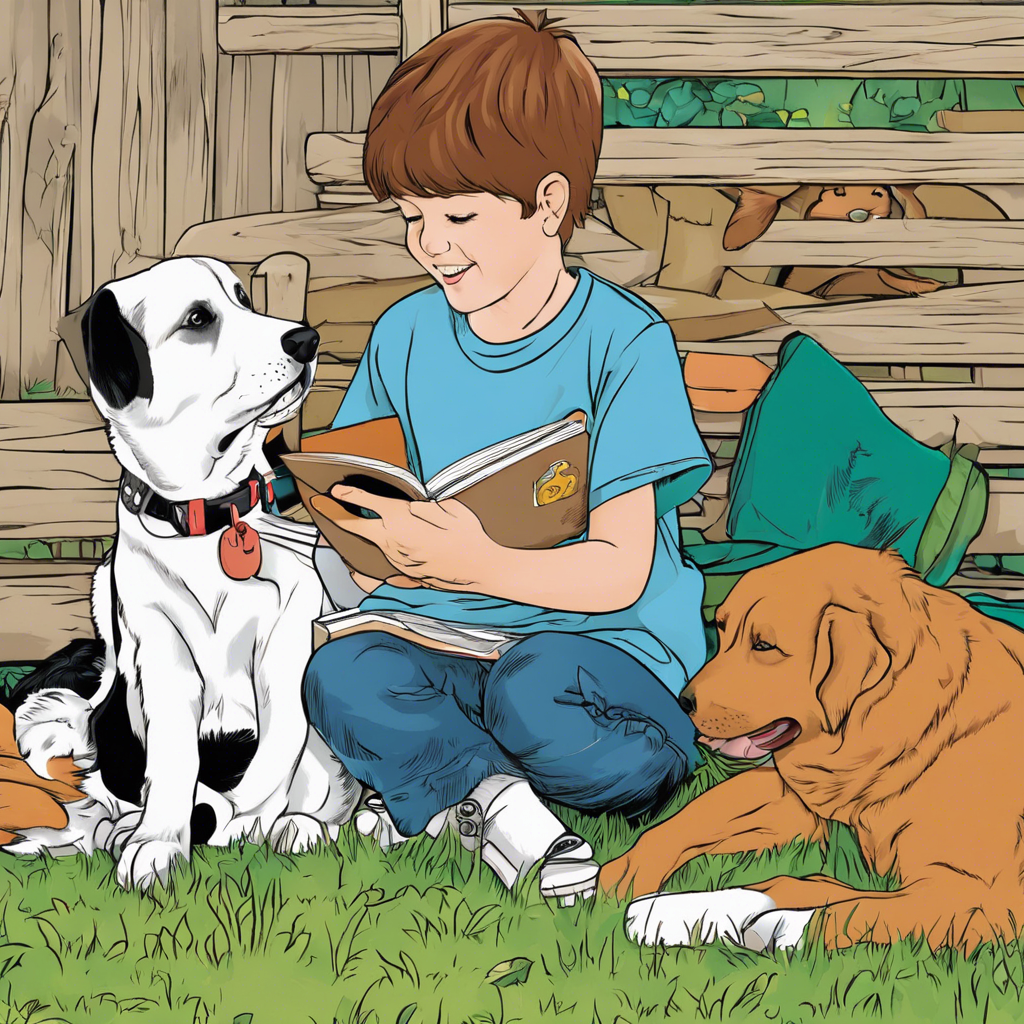Exploring the positive link between pet ownership and reducing childhood behavioral disorders.
Pet ownership has long been considered a rewarding experience for people of all ages, but did you know it can also significantly influence childhood development? Recent studies have shed light on an intriguing connection between having a pet and a reduction in various behavioral issues among children. This article delves into the fascinating world of child psychology, highlighting the potential benefits of welcoming a furry friend into your family.
The presence of a pet in a child’s life is more impactful than one might imagine. From enhancing social skills to fostering emotional intelligence, pets can play a vital role in a child’s growth and development. Let’s explore some of the ways pets can positively influence children’s behavior and overall well-being.
The Role of Pets in Emotional Development
Research suggests that children who grow up with pets are more likely to display higher levels of emotional intelligence. Pets can serve as a source of comfort and companionship, providing an outlet for children to express their emotions freely. The bond between a child and their pet can often be akin to a secure attachment, promoting feelings of safety and security.
Building Empathy
Pets can teach children about empathy and compassion. Through caring for a pet, children learn to recognize and respond to the needs of others. This experience can foster a sense of responsibility and nurture their understanding of emotions, both in themselves and others.
Managing Stress and Anxiety
Having a pet can be particularly beneficial for children who struggle with stress and anxiety. The soothing presence of a pet can help calm anxious minds, offering a sense of comfort and support. Studies have shown that interacting with pets can lower cortisol, a stress hormone, and increase oxytocin, a hormone associated with bonding and affection.
Social Benefits of Pet Ownership
Pets can act as social catalysts, encouraging children to interact and engage with others. This is especially significant for children who may struggle with social skills or experience shyness.
Encouraging Communication
A pet can be a conversation starter for children. Whether it’s discussing their pet’s antics or simply bonding over a shared love for animals, pets provide a common topic of interest that can help children connect with their peers.
Building Confidence
Children who own pets often develop increased self-esteem and confidence. The positive feedback they receive from their pets can boost their self-worth, especially when they feel accepted and loved by their animal companions. This newfound confidence can translate into various aspects of their social interactions.
Unleashing the Benefits
Here’s a glimpse into some of the ways pets can enhance children’s social skills:
- Pets can encourage children to engage in playful activities, fostering social interaction and cooperation.
- Taking care of a pet can teach responsibility and time management, valuable skills for social interactions.
- The presence of a pet can create a safe and supportive atmosphere, making it easier for children to open up and share their thoughts and feelings.
Pet Ownership and Behavioral Issues
One of the most intriguing aspects of pet ownership is its potential to mitigate childhood behavioral issues, such as ADHD and oppositional defiant disorder. While further research is needed, initial studies indicate a positive correlation between pet ownership and reduced symptoms in children with these disorders.
ADHD and Pets
In a study conducted by the Centers for Disease Control and Prevention, researchers found that children with ADHD who had pets exhibited better social skills and fewer behavioral problems than those without pets. The presence of a pet appeared to have a calming effect, helping children manage their symptoms more effectively.
Related Questions
How can pet ownership impact children’s academic performance and cognitive development?
It’s fascinating to note that pet ownership may even influence a child’s academic performance and cognitive development. Studies have indicated that children who have pets tend to display improved concentration, memory, and problem-solving skills. The routine of caring for a pet and the emotional support it provides can create a positive learning environment, potentially leading to better academic outcomes.
What are some tips for families considering getting a pet to support their child’s development?
For families considering pet ownership, it’s essential to choose a pet that suits your child’s personality and needs. Research the various pet options and their specific care requirements. Ensure that your child is involved in the caregiving process and provide guidance on the responsibilities associated with pet ownership. Remember, the bond between your child and their pet can be a powerful tool for positive development.
Conclusion
Pet ownership offers a unique and rewarding opportunity to support children’s emotional, social, and behavioral development. From building empathy and managing stress to encouraging social interaction, pets can have a profound impact on a child’s growth. While further research is always beneficial, the existing evidence strongly suggests that pets can be a valuable addition to families, enriching the lives of children in countless ways.
Suggested External Links and Anchor Texts:
1. ResearchGate – Positive Effects of Pet Ownership on Children
2. National Library of Medicine – Pets in the Family May Protect Against Childhood Anxiety
3. Child Mind Institute – Pets in Therapy for Children with Autism
